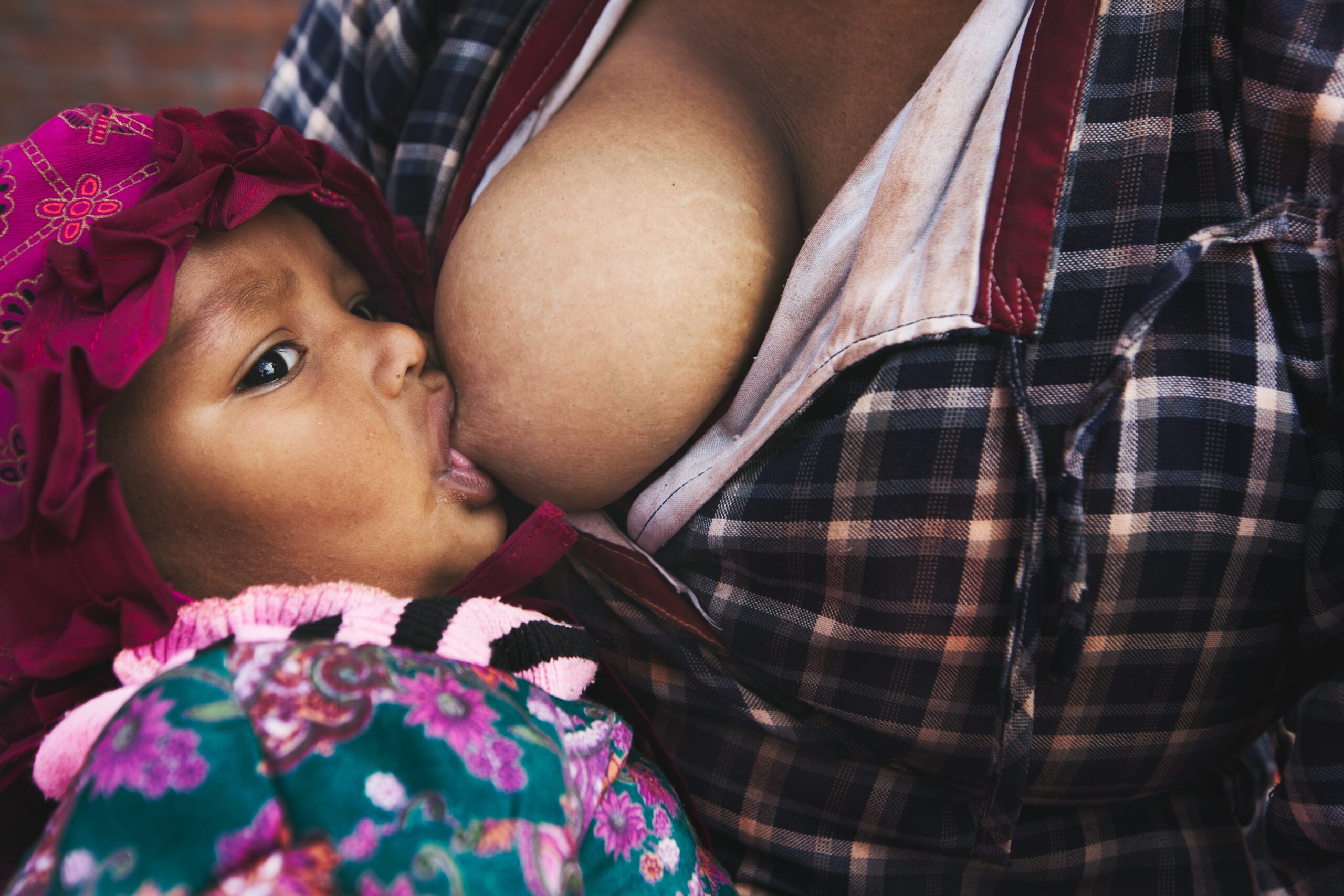Breastfeeding as a Black woman can oftentimes feel like a challenge. Luckily Black Breastfeeding Week helps highlight and celebrate the health benefits, empowerment, and community engagement birth-giving individuals can experience.
From Aug 25 to Sept 1, Black Breastfeeding Week helps Black birthing people understand more about the beauty of their bodies and its functions. The initiative was launched over nine years ago by Kimberly Seals Allers, Kiddada Green and Anayah Sangodele-Ayoka. It was developed to promote awareness and highlight the special challenges and triumphs of being Black and breastfeeding.
According to a study by BMC Public Health on breastfeeding rates among American women, Black women were the least likely to report any breastfeeding. This could be due to many factors including a lack of knowledge, support and community. Celebrities like Victoria Monet and Tia Mowry have even shared their breastfeeding experiences. The actress took to Instagram to share her journey and explained that she was able to find ease once she had support.
“During my second pregnancy, Instagram was around and it was actually through here where I learned a lot more about breastfeeding, ” she explained. “Also where I met a huge community of women who were all so supportive and encouraged me to continue on. And during the second time, I found that I was able to breastfeed Cairo for 13 months.”
21Ninety sat down with Dairian Roberts, Lactation Consultant and co-founder of Humbled by Motherhood, to talk all things surrounding breastfeeding as a Black birthing person.
Black Breastfeeding Challenges

There are many challenges that come with breastfeeding.
“One of the most common things that I see particularly is in the hospital,” Roberts began to explain. “If they are giving a hospital birth, they’re more likely to just be offered formula in the hospital without asking. It’s just the assumption that we’re not going to and therefore offered formula.”
She goes on to explain that it comes from an implicit bias and there are typically no outward presenting symptoms that call for a mother to choose formula over breastfeeding. There are several reports that showcase how Black women are often mistreated in the medical field, specifically pre-natal and postpartum mothers. So, the choice to suggest formula to new Black mothers by the hospital staff doesn’t come as a surprise to Roberts.
“I’ve also seen a lot of older generations and like mostly Black culture that don’t hold like the same reverence for breastfeeding,” she continued. “It’s looked at as more convenient and easier to use infant formula. I think we’re just less likely to pursue prenatal education about breastfeeding and we know that prenatal education actually increases the initiation and the duration of breastfeeding.”
A Place of Comfortability
It can be difficult for mothers to breastfeed when doing it alone. Even Roberts shared that breastfeeding her first child was difficult because she didn’t have much prior knowledge. However, she was able to rely on her sister who went through breastfeeding her own child already.
“I would say finding community is the best thing. I am a big advocate for finding all different levels of support if this is the choice that mothers want to make,” she urged. “So that means maybe tapping into some peer support. Finding some friends, finding any parent groups or mom groups that are specific to breastfeeding.”
She explained that the bigger breastfeeding organizations aren’t necessarily the best for finding support because they lack representation and diversity. Social media, however, is a great tool she suggests. There are many Black Lactation consultants online who share tips and tricks for birthing people to follow and learn more about the best breastfeeding practices.
In her own journey, Roberts experienced her own issues. She was told to throw out her milk and she found herself producing pink milk due to bleeding. She found her journey with her first child to be difficult and challenging. Her aforementioned sister helped her to feel comfortable advocating for herself to her non-Black lactation consultant.
By the time she had her second child, she was able to find a community, which made her journey easier. She was prepping for her lactation board exam at the time of her second birth as well. Roberts felt as though she was textbook-ready to take on breastfeeding but her colleagues explained to her that she couldn’t treat herself. So she had no other choice but to lean into her support system. She proudly exclaimed that both of her children had been breastfed for over two years.
“The first thing you need to do is find support,” she repeated.
